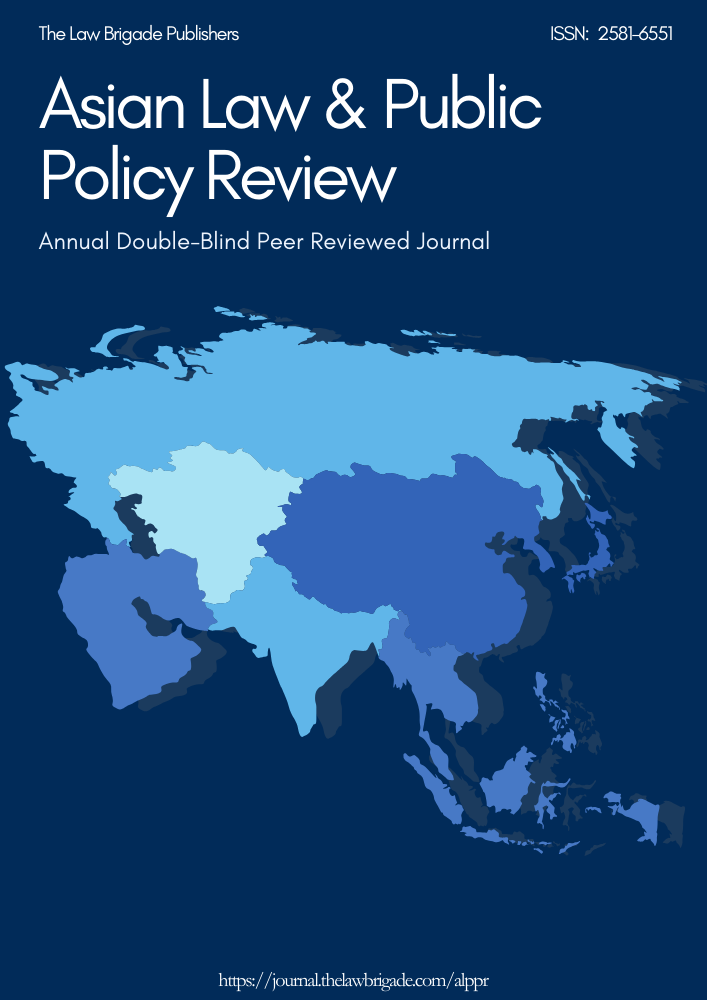Relevance Of Volksgiest: A Theory Propounded By Savigny
Keywords:
Jurisprudence, the will of people, Friedrich Carl von SavignyAbstract
Friedrich Carl von Savigny (21 February 1779 – 25 October 1861) was a famous 19thcentury jurist and historian. One of the principal doctrines of Savigny was that laws are not of universal validity or application. Each people develop its own legal habits, as it has its own peculiar language, manners and constitution. Savigny insists on the parallel between language and the law. Neither is capable of application to other people and countries. The Volksgeist manifest itself in the law of the people; and he therefore said it is essential to follow up the evolution of the Volksgeist by legal historical research. Thus according to savigny the origin of law lies in the popular spirit of the people and this is what Savigny termed as Volksgeist. Friedrich Carl von Savigny was the main exponent of the historical interpretation of the law and is considered to be the propounder of historical jurisprudence. He traced the development of law as an evolutionary process much before Darwin gave this theory of evolution in the field of biological sciences in 1861. It is for this reason that Dr. Allen defined Savigny as ‘Darwinian before Darwin.’ It was observed that the essence of Savigny’s Volksgeist was that a nation’s legal system is greatly influenced by the historical culture and traditions of the people and the growth of law is to be located in their popular acceptance. This laid the foundation of the historical school of jurisprudence which was carried forward by Sir. Henry Maine in England, Vinodradoff, Lord Bryce and many others.
Downloads
Downloads
Published
Issue
Section
License

This work is licensed under a Creative Commons Attribution-NonCommercial-ShareAlike 4.0 International License.
License Terms
Ownership and Licensing:
Authors of research papers submitted to any journal published by The Law Brigade Publishers retain the copyright of their work while granting the journal specific rights. Authors maintain ownership of the copyright and grant the journal the right of first publication. Simultaneously, authors agree to license their research papers under the Creative Commons Attribution-ShareAlike 4.0 International (CC BY-SA 4.0) License.
License Permissions:
Under the CC BY-SA 4.0 License, others are permitted to share and adapt the work, even for commercial purposes, provided that appropriate attribution is given to the authors, and acknowledgment is made of the initial publication by The Law Brigade Publishers. This license encourages the broad dissemination and reuse of research papers while ensuring that the original work is properly credited.
Additional Distribution Arrangements:
Authors are free to enter into separate, non-exclusive contractual arrangements for distributing the published version of the work (e.g., posting it to institutional repositories or publishing it in books), provided that the original publication by The Law Brigade Publishers is acknowledged.
Online Posting:
Authors are encouraged to share their work online (e.g., in institutional repositories or on personal websites) both prior to submission and after publication. This practice can facilitate productive exchanges and increase the visibility and citation of the work.
Responsibility and Liability:
Authors are responsible for ensuring that their submitted research papers do not infringe on the copyright, privacy, or other rights of third parties. The Law Brigade Publishers disclaims any liability for any copyright infringement or violation of third-party rights within the submitted research papers.


